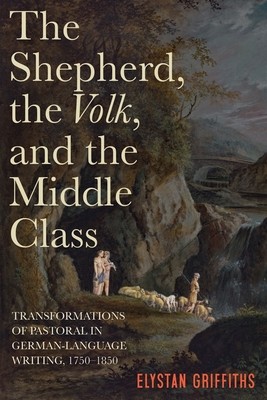
- We will send in 10–14 business days.
- Author: Elystan Griffiths
- Publisher: Camden House (NY)
- Year: 2020
- ISBN-10: 1640140646
- ISBN-13: 9781640140646
- Format: 15.2 x 22.9 x 1.8 cm, kieti viršeliai
- Language: English
- SAVE -10% with code: EXTRA
Reviews
Description
Analyzes the transformation of German-language pastoral from a portrayal of the idyllic lives of herdsmen into a vehicle for the concerns and aspirations of the middle class.
European pastoral tradition traces its roots to Theocritus's Idylls and Virgil's Eclogues, which portrayed herdsmen pursuing love and art. While the lives of shepherds, or of country folk generally, remain the ostensible subject of pastoral, Elystan Griffiths argues that in the German context after 1750 its central concerns were those of an emergent, nationally minded, creative middle class. These concerns became increasingly urgent in the face of the upheaval of the French Revolution and the need to respond to the rise of capitalist modernity. The Shepherd, the Volk, and the Middle Class traces how pastoral was transformed in the work of major German-language authors, including Gessner, "Maler" Müller, J. H. Voss, Goethe, Kleist, Mörike, and Nestroy, into a vehicle for serious moral, political, and social questions. Debates raged about whether present-day shepherds were fit to appear in literature, or whether the objects of pastoral should, rather, be the idealized shepherds of Arcadian prehistory or early Biblical times. Pastoral was thus bound up with cultural and political questions surrounding the relationships between the classes, the state of the peasantry, the nature of art, and most fundamentally the social constraints of the thinking subject amid the emancipatory promise of the Enlightenment.
EXTRA 10 % discount with code: EXTRA
The promotion ends in 22d.23:38:36
The discount code is valid when purchasing from 10 €. Discounts do not stack.
- Author: Elystan Griffiths
- Publisher: Camden House (NY)
- Year: 2020
- ISBN-10: 1640140646
- ISBN-13: 9781640140646
- Format: 15.2 x 22.9 x 1.8 cm, kieti viršeliai
- Language: English English
Analyzes the transformation of German-language pastoral from a portrayal of the idyllic lives of herdsmen into a vehicle for the concerns and aspirations of the middle class.
European pastoral tradition traces its roots to Theocritus's Idylls and Virgil's Eclogues, which portrayed herdsmen pursuing love and art. While the lives of shepherds, or of country folk generally, remain the ostensible subject of pastoral, Elystan Griffiths argues that in the German context after 1750 its central concerns were those of an emergent, nationally minded, creative middle class. These concerns became increasingly urgent in the face of the upheaval of the French Revolution and the need to respond to the rise of capitalist modernity. The Shepherd, the Volk, and the Middle Class traces how pastoral was transformed in the work of major German-language authors, including Gessner, "Maler" Müller, J. H. Voss, Goethe, Kleist, Mörike, and Nestroy, into a vehicle for serious moral, political, and social questions. Debates raged about whether present-day shepherds were fit to appear in literature, or whether the objects of pastoral should, rather, be the idealized shepherds of Arcadian prehistory or early Biblical times. Pastoral was thus bound up with cultural and political questions surrounding the relationships between the classes, the state of the peasantry, the nature of art, and most fundamentally the social constraints of the thinking subject amid the emancipatory promise of the Enlightenment.


Reviews